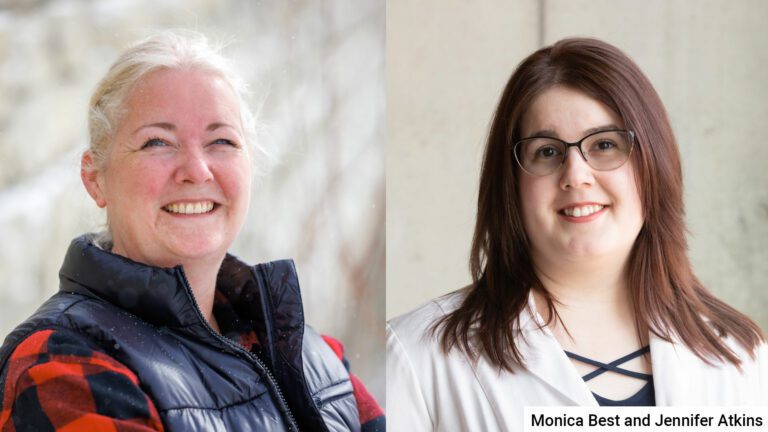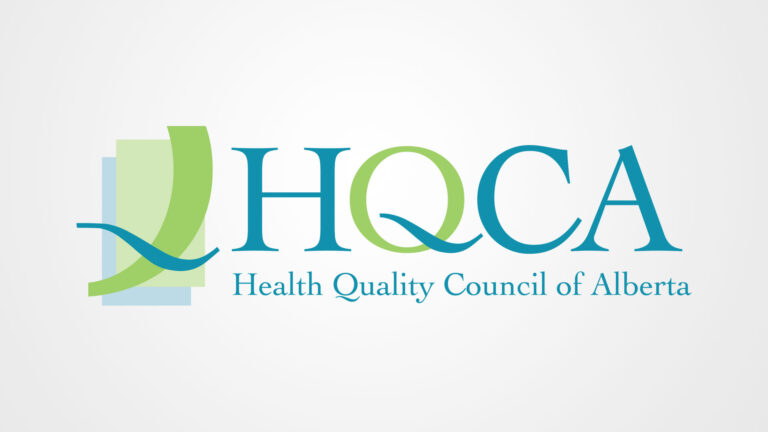
Sterile compounding is a complex and technical field that only a select few in the pharmacy professions truly master. It requires extensive technical knowledge, constant precision, and an ability to interpret standards into daily best practice. To successfully help others grow and develop their skills in this field takes someone with truly unique abilities. Enter ACP’s sterile compounding assessors (SCAs).
Monica Best has seen it all and done it all in two decades of work as a pharmacy technician. She started at the Peter Lougheed Centre in Calgary doing batch production in the dispensary. When Alberta Health Services (AHS) opened their central production facility, Monica moved there to work in production and compounding, and became a lead technician in charge of inventory, scheduling, and management.
For the past nine years she has been at the Alberta Children’s Hospital, now serving as sterile compounding supervisor and a preceptor for students.
“At the children’s hospital we do especially complex work, due to the individual dosing based on weight,” Monica said. “Practicing sterile compounding every day is a huge part of being a subject matter expert.”
SCAs aren’t just experts in their field, but leaders in their profession. Edmonton-based Jennifer Atkins became a pharmacy technician after being inspired by a biology instructor to get involved in health care. She graduated from Norquest College in 2012, and moved on to work in sterile compounding at the Cross Cancer Institute. Now practising at the University of Alberta Hospital’s in-patient pharmacy, she has also gone back to her roots to become an instructor at Norquest.
“I get to watch the students grow and evolve into full technicians and contribute to practice,” said Jennifer. “Blending regulatory standards into best practices and figuring out how to teach students, to show them why things are done a certain way, not just how to do it, is so energizing for technician practice.”
In their roles with ACP, Monica and Jennifer go into sterile compounding pharmacies and help pharmacy teams meet the standards and improve their practice.
“Within pharmacy, nobody can achieve their role to the best of their abilities without others,” said Monica. “We all have to work together to achieve the common goal of improving the health of patients.”
Pharmacy practice consultants (PPCs) need to maintain overall knowledge of all standards and practice, and don’t have the time to develop the same level of specialization. SCAs take responsibility for the extensive requirements of sterile compounding, down to the air particle requirements of the different rooms involved.
“I try to make it more relaxed and treat it like an educational experience, to share my perspective on the standards,” said Monica. “I observe and offer pointers and improvements to help them achieve best practice.”
Jennifer also prioritizes a collaborative approach.
“I’m so excited to be a part of the ACP team, being able to work collaboratively with pharmacists and have discussions about the standards,” said Jennifer. “We get to see what is occurring daily in practice and experience everyone’s processes and ideas. If there is a gap, we explore it, and help pharmacies to navigate the regulations and standards and elevate their practice.”
The collaborative approach also extends beyond their official visits to sterile compounding pharmacies. Both also encourage their fellow technicians to engage in dialogue with other pharmacy professionals.
“We have to be open to change and discussions,” said Jennifer. “We can’t feel like pharmacy practice has to be siloed between institutional and community, or that community pharmacies can’t collaborate and share information. Step outside your comfort zone and fill your own gaps to grow as a person.”
That dialogue should extend to the college as well.
“New standards and regulations can impact different sites in different ways, and impact scope of practice in different ways,” said Monica. “We have an opportunity to engage with ACP to help provide feedback for improving the profession, which is a huge advantage.”




